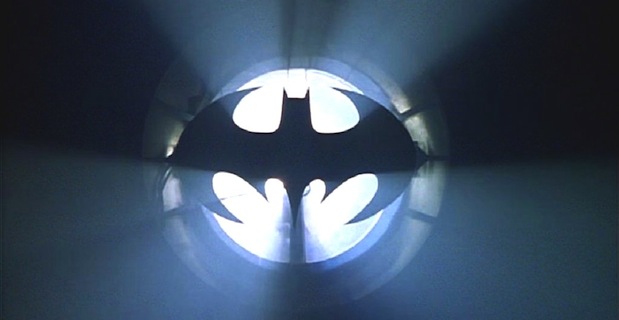
Written by UTG critic Grace Duffy, Scene & Heard takes a look at the music that makes our favorite films so memorable. Whether it’s the 400-piece orchestra Christopher Nolan used for The Dark Knight, or the dozen or so bands that contributed to the soundtrack of Top Gun, there is no denying the impact music has on movies and this column hopes to highlight the best of the best.
If you have a suggestion for a film we should cover on Scene & Heard, please contact us by emailing utgjames@gmail.com.
The Batman universe hasn’t always received the film adaptations it quite deserves. Those of us acquainted with the Caped Crusader – and even many of us not so – will freely acknowledge that the adaptation we most love to hate is Joel Schmacher’s much-maligned 1997 offering, Batman and Robin. To the uninitiated, it’s also known as that gloriously camp extravaganza in which Arnold Schwarzenegger was turned into an ice pop and Uma Thurman’s hairdresser saw Madonna’s chest in the 80s and recreated it on her head. It’s also probably the last time anyone was able to get George Clooney to make a complete tool of himself onscreen – although the man did sport an early tendency towards the sublimely ridiculous, kicking off his glittering career in the 80s with beautifully named treatises like Return of the Killer Tomatoes.
Yet, for all Batman and Robin’s bad press – and the fact it’s hopelessly, inexorably awful – it still has something that no Batman movie has been without, and that is a quality score. Each film since their cinematic inception at the hands of Tim Burton back in 1989 has had some riveting music to accompany it, starting at the fabled fingers of Danny Elfman and peaking with the thrilling theme of James Newton Howard and Hans Zimmer in The Dark Knight. The original film, which created a slightly cartoonish if sumptuous reality for Gotham and decked Michael Keaton out in nigrescent rubber, was given a flagship theme that combines the darkness and enigma of the “bat-man” figure with a sharp sense of peril and adventure. It’s a shirking and ominous piece of music, perfectly timed and executed with the opening credits. It begins with an insidious rumble, cloaked in the same eerie sense of shadow as the film’s titular character, and builds gradually to unveil itself with a flurry of orchestral bombast alongside the bat symbol. Prince may have contributed most of the score, rendering the music just as gleefully discordant and excessive as the heavily stylised 80s world the movie makes of Gotham, but Elfman’s original and seminal piece of music is for many the most beloved musical representation of the Dark Knight.
Elliot Goldenthal was the next composer to build on these foundations. Hired to take over musical duties when Joel Schumacher took the reins for Batman Forever in 1995, Goldenthal added an extra dimension, rounding the music out slightly and removing some of its darkness for spectacle and grandiosity. Much like the film, he replaced mystery with bluntness, going for an upfront and shaking bravura where Elfman had matched a grim sense of responsibility with the darkly comic and often dystopian world onscreen. Goldenthal is not a household name, but his music is well-known and rightly feted amongst film score fans. He’s a more understated, experimental, and intelligent composer than Elfman or later contributors Zimmer and Newton Howard, making his work on this picture somewhat atypical. Where one might traditionally expect something cerebral and astute from him, here he matches glamour with glamour, excess with excess, and creates something gaudy and decadent. The main theme is re-imagined as something huge and intimidating, completely vanquishing the creeping subtleties of Elfman’s work. There’s a prominence afforded the brass and percussion that sounds almost circus-like, a motif running throughout the score. “Batterdammerung” is bold and triumphant, with a freewheeling string section serenading the improbability of Batman’s victory over his loopy assailants, and “Fledermausmarschmusik” an almost military-style renegade march accompanying the Caped Crusader to his nocturnal battlefield. The score is executed much like a stage show, and despite the considerable distaste that abounds for this film there is much entertainment to be had from its theatrical glitz and excesses.
That Batman Forever provides as much to love as to hate is further evidenced by the gargantuan failure of its sequel, which replaced the decidedly tongue-in-cheek hysterics and charismatic villainy of Tommy Lee Jones and Jim Carrey with a humourless wasteland. Yet, “A Batman Overture,” which reworks the theme, brings a certain inane seriousness to the music and thereby lends it far more character than the film. It’s brash, pompous, and awash with a disproportionate sense of awe. Its inherent majesty and magnitude fits the Batman legend perfectly, for all that the movie failed to match these credentials. Controversial though this may be, one could make a firm case for this overture being an ideal encapsulation of the Dark Knight’s character. It’s pervasive and awe-inspiring as his legend, sensationalised as his antics, with a certain recklessness, grim acceptance, and hints at the faintly ludicrous. Chris Nolan may have the given the character a more realistic and sombre grounding, but when I was 8 or 9 these movies and this music gave me just about all the thrills I needed from a live action cartoon.
As for the said Nolan interpretation, its musical merits will be examined in Part 2 next week. In the meantime, you could do worse than reacquaint yourselves with the seminal efforts of Messrs. Elfman and Goldenthal – that’s the soundtrack to many a childhood, right there.
- 2015’s Most Underrated Films - December 29, 2015
- Passing The Torch: The End Of An Era For UTG - December 1, 2015
- UTG PREMIERE: Before The Streetlights – “Private Browser” - November 26, 2015

